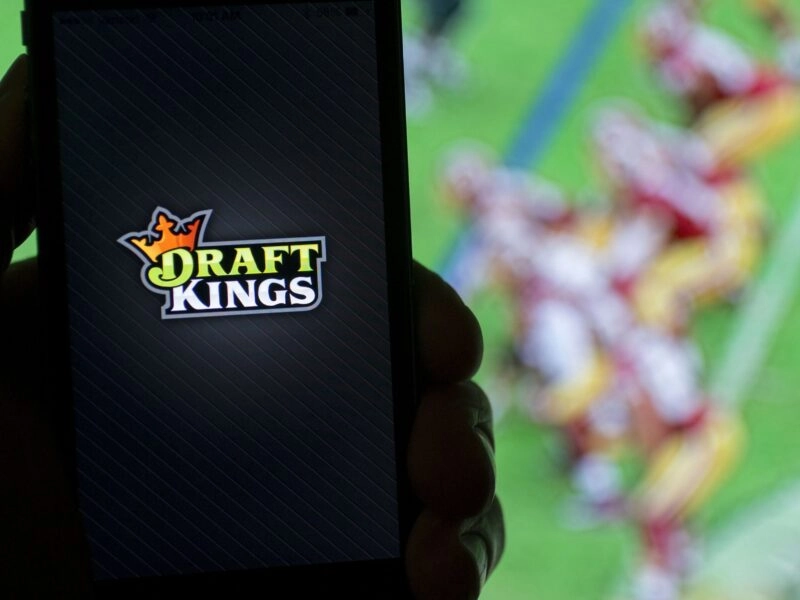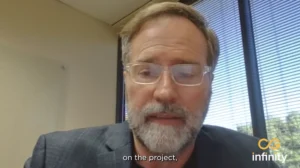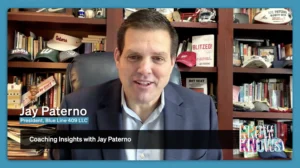California’s $364 Million Sports-Betting Fight Is Getting Messy

(Bloomberg) — California has the potential to become, it’s estimated, a multi-billion-dollar sports gambling market, larger than everywhere in the world except the UK.
Which is why, with 11 weeks left to the November election, casinos, American Indian tribes and other interested parties have put up some $364 million — the greatest amount ever spent on a state ballot measure — to try to legalize it, shape it or kill it.
There are two competing proposals on the ballot. Proposition 26 would only allow sports betting in person at tribal casinos and horse-racing tracks. Proposition 27 would let gambling companies offer online betting anywhere in the state in partnership with tribes.
The latter is very much in line with state gambling laws that have swept the country in recent years. Neither is a shoo-in of getting the majority required to become law. Should both surpass 50%, the one with the most affirmative votes wins. That could prompt litigation, however.

The campaign is dividing California’s tribes, which enjoy a monopoly on many casino games in the state. A handful of smaller tribes are aligning themselves with upstart online betting operators, such as DraftKings Inc. and FanDuel, to push for Proposition 27. Many others are backing Proposition 26. The parties have blanketed the airwaves and social media. The money raised already tops the previous record for a state proposition, the sum spent on a 2020 measure governing gig workers that was funded by Uber Technologies Inc. and others.
“It’s a big market, on a global scale,” said James Kilsby, an analyst with Vixio GamblingCompliance.
Expansion of Sportsbooks
Sports betting has exploded in the US since the Supreme Court allowed it to expand outside of Nevada four years ago. It’s now offered in 30 states and the District of Columbia. California’s fight is unique, however. Only a handful of states have put sports-betting measures on the ballot, and even then they’ve largely left details, such as tax rates and licensing, up to lawmakers, according to Kilsby.
California legislators have been unable to pass a sports-betting bill themselves, in part due to opposition from the tribes, which operate about 66 casinos in the state, and other special interests. In some cases, the parties either couldn’t agree on potential terms or just didn’t want the competition.
Each side has written a ballot measure to favor their own interests. Proposition 26 leaves it up to each tribe and the state to determine revenue sharing. The money raised would mostly go to California’s general fund. Proposition 27, backed by the online operators, puts the tax rate at 10%, at the lower end for states nationally. That revenue would mostly go toward homelessness and gambling addiction.
Proposition 27 says providers must already be licensed in 10 other states and be willing to pay a $100 million initial license fee. That would likely limit applicants to big operators, such as Bally’s Corp., Wynn Resorts Ltd., Penn Entertainment Inc. and BetMGM, which are supporting the measure.
Other casino companies, such as Caesars Entertainment Inc., are staying out of the fight out of fear they’ll hurt their relationships with the tribes they do business with.
Nathan Click, a spokesman for the Yes on 27 campaign, said the crafters of that measure wanted to make sure California had “responsible actors with a track record of safety.” No other state collects $100 million license fees, he said. Ten others have tax rates of 10% or less. And 15 or more online operators might be able to qualify for entry.
The tribes backing Proposition 26, meanwhile, have written online operators out their ballot proposal. In addition, their measure would also allow them to offer roulette and craps, games which have nothing to do with sports betting.
Kathy Fairbanks, a spokesperson for a coalition that’s for Proposition 26 and against 27, said their measure “was designed to continue Californians’ long-standing commitment to allow Indian tribes to offer well-regulated gaming on tribal lands.”
Their measure also includes provisions making it easier to sue California’s 84 card rooms, which offer poker and other card games. Tribes have long fought the card clubs’ efforts to offer games like blackjack and baccarat. Card rooms have contributed to a campaign that’s raised $42 million to defeat Proposition 26, arguing it would hurt local jobs and tax revenue. They also have support from some cities, unions and even animal rights groups that oppose sports betting at the horse tracks.
‘Just Want to Co-Exist’
“It would devastate us,” said Juan Garza, who represents five cities in Los Angeles County that operate card rooms. “We just want to co-exist.”
To further complicate the fight, some of the state’s 110 tribes are pitching a measure that would allow them to operate mobile sports betting. It didn’t qualify for this year’s ballot, but may at a later date. In the meantime, they’re part of a group that’s raised $66 million to defeat Proposition 27.
The anti-Proposition 27 tribes have mostly positioned that measure as a money grab from outsiders, though their opposition to out-of-state interests is selective. One ad from a No on 27 group features two tribal leaders, Jesus Tarango and Glenda Nelson, saying “These out-of-state corporations don’t care about California. But we do.”
Tarango’s tribe just opened a casino south of Sacramento with Nevada’s Boyd Gaming Corp., while Nelson’s tribe operates one north of the city with Florida’s Hard Rock International.
“Tribes have a choice to work with operators because they’re in charge,” Rob Stutzman, a spokesperson for their coalition, said in an email. “Prop. 27 eliminates that choice and puts out-of-state corporations in charge.”
A Yes on 27 ad, meanwhile, features tribal Chairman Jose “Moke” Simon III saying partnerships with online operators will benefit small tribes, like his 250-member Middletown Rancheria of Pomo Indians of California in rural Lake County.
“This gives us an opportunity to move into the e-commerce side of gaming,” he said in an interview. “We feel that’s where it’s going in the future.”
More stories like this are available on bloomberg.com.
©2022 Bloomberg L.P.









